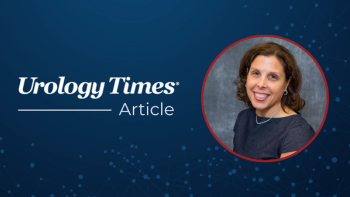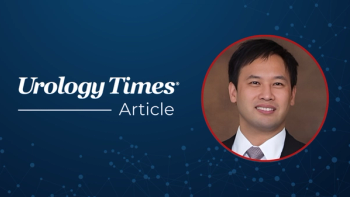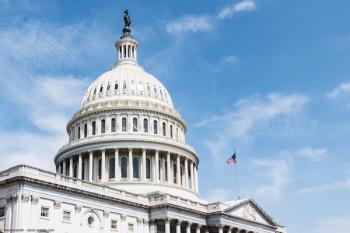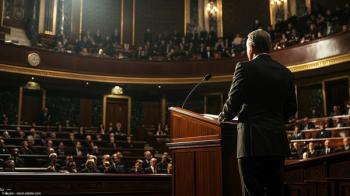
Urologists address transformative change at 50th anniversary meeting
The American Association of Clinical Urologists recently celebrated its 50th anniversary with a high-profile annual meeting in Washington, D.C.
Based on a partnership with Urology Times, articles from the American Association of Clinical Urologists (AACU) provide updates on legislative processes and issues affecting urologists. We welcome your comments and suggestions. Contact the AACU government affairs office at 847-517-1050 or
Upon passage of the Medicare law in 1965, several decades of growing concern by American urologists soon culminated with the founding of the American Association of Clinical Urologists. The organization dedicated to influencing socioeconomic and political affairs via direct communication between urologist and legislator recently celebrated its 50th anniversary with a high-profile annual meeting in Washington, D.C.
In addition to reuniting with past presidents dating back more than 30 years, the leaders of tomorrow came together at this event to address issues that affect all urologists and the patients they serve.
Fifty years ago, AUA President Charles A. Hoffman, MD, convened a couple dozen colleagues on the sidelines of the AUA annual meeting over which he presided. Wary of the government's widening role in the practice of medicine, the group resolved to establish an organization to which urologists could turn that would shape public policy and influence legislative affairs. Within months, leaders of the nascent group were called to testify before a congressional committee on competing national health insurance proposals written by Sen. Edward Kennedy and President Richard Nixon.
Also from the AACU:
Fast forward 40 years and the AACU confronted a watered-down version of the same concept-the Affordable Care Act.
The adage, "The more things change, the more things stay the same" doesn't necessarily apply across the board, however. Indeed, as evidenced by the AACU's conference, the profession has undergone significant and important changes that have transformed the urologic work force.
One revolutionary trend was identified by Association of American Medical Colleges Chief Health Care Officer Janis Orlowski, MD, MACP, who noted that while females currently comprise just 8% of all urologists, the population of female residents and fellows is three times that total. Health care industry consolidation and increasingly expensive overhead costs have likewise contributed to a radical change in the nature of urologic practice.
Newly elected UROPAC Treasurer Amanda North, MD, led an informative panel discussing how practice type affects work-life integration, while North Central Section Representative Peter Knapp, MD, called on colleagues to build a Unique Ability Team comprised of physicians, non-physician providers and administrative staff to reduce burnout.
Next:
That 'Maryland Waiver' was the subject of Carson Lecture honoree Nelson Sabatini, the state's former Secretary of Health who currently chairs the Maryland Health Services Cost Review Commission (HSCRC). The HSCRC is an independent state agency that oversees a hospital payment system in which all payers-public and private-pay the same rates.
In addition to Sabatini, the AACU honored U.S. Rep. Andy Harris, MD, an emergency room physician on the eastern shore of Maryland who serves as co-chair of the GOP Doctors Caucus. Rep. Harris supplied an inside perspective on the prospect of prior authorization requirements for Medicare Advantage plans and provided graphic representation of how insurance profits soar and hospitals prosper while Medicare physician payments are legally bound to a 0% increase from 2019 to 2025.
Read:
Another elected official was recognized by the AACU as its Distinguished Leadership Award honoree. Arizona state Rep. Heather Carter, PhD, addressed a packed room on her efforts to secure support for a new law that authorizes reimbursement for urologic telemedicine services.
The integration of telemedicine in the health care delivery system was also covered by AACU Health Policy Chair Jonathan Henderson, MD, who explained how proposed changes to Medicare payments for 2019 would increase coverage and reimbursement for telehealth services. Dr. Henderson also highlighted the role of UROPAC in representing urologists' political interests. He reported that UROPAC members attended more than two dozen in-district events in the last year-and-a-half, thereby establishing personal relationships between urologists and legislators.
Throughout the AACU's 50th Anniversary Annual Meeting, it was made clear that it's those personal relationships that truly affect change in Washington. Professional organizations like the AACU have long existed to initiate and facilitate urologists' interactions with policymakers. Supporting these efforts via membership, first and foremost, and then engagement as your professional and personal lives allow, ensure that urologists' patients, practices, and profession are well represented in national and state capitals.
Newsletter
Stay current with the latest urology news and practice-changing insights — sign up now for the essential updates every urologist needs.






